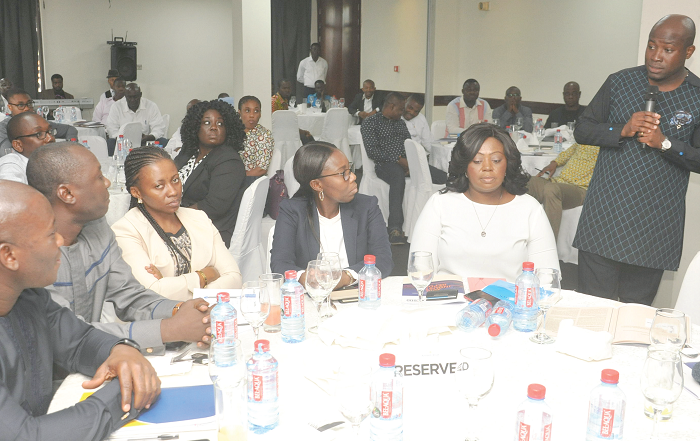
Address policy inconsistencies in petroleum downstream sector - CBOD tells govt
The Ghana Chamber of Bulk Oil Distributors (CBOD) has called on the government to take pragmatic measures to deal with the inconsistencies in the policy regarding the petroleum downstream sector.
Advertisement
According to the chamber, there had been several occasions where some policies enacted by the regulator, the National Petroleum Authority (NPA), had to be either changed or quickly modernised to favour some political party apparatchiks, who have interest in the sector to the disadvantage of some petroleum service providers.
That, it said, had created market distortions in the sector, which was having a negative impact on the operations of its members.
The Chief Executive Officer (CEO) of the CBOD, Mr Senyo Hosi, made the remarks at the fourth annual general meeting (AGM) of the chamber in Accra last Friday.
Unfair policies
“There’ve been a lot of occasions when the NPA introduces a law today, the next moment it is changed simply because it wants to favour a party member who wants to enter the petroleum downstream sector.
“What is more troubling is that after the laws or policies are modernised, they are quickly changed again at any time to the detriment of members of the chamber,” Mr Hosi stated.
He cited some inconsistencies with price deregulation and other policies which were not favouring the petroleum service providers.
“Unilateral changes in the deregulation policy, covert subsidisation of parastatal companies against the private sector, use of the government’s reach to abuse public infrastructure to the disadvantage of the private sector, incongruence between regulation and implementation, characterised the public policy and regulatory sphere; all these were not supportive of the private sector,” he said.
BDCs debts
Despite receiving about GH₵1.071 billion as payments from the government to settle its debts owed the Bulk oil Distributing Companies (BDCs), Mr Hosi indicated that there still remained over GH₵1 billion the government had to pay.
On the industry’s finances during the year under review, Mr Hosi said it faced a lot of challenges, including unpaid under-recoveries, high tariffs, forex loses and unfair competition from the government.
“The gross BDC premium for 2016 averaged $47.82 metric tonnes and $53.79 metric tonnes for petrol and fuel and gas respectively.
“This represents a 58 per cent and 52 per cent drop in indicative NPA premiums which stand at $112.17 metric tonnes for both products,” he added.
Notwithstanding, he said the chamber did also record some profits during the year under review.
Government commitment
A Deputy Minister designate for Energy, Dr Mohammed Amin Adam, emphasised the government’s commitment to pay all the debts owed the BDCs.
He also stated that the ministry was concerned about the policy inconsistencies, and would take immediate steps to address them.
Dr Adam also said the government would soon introduce the local content policy to the petroleum upstream sector to favour many more of Ghanaian industries.
Clamp down on illegal PSPs
The acting CEO of the NPA, Mr Alhassan S. Tampuli, said the authority would soon begin a process of clamping down on all petroleum service providers operating illegally in the country.
As a result of the price deregulation policy, Mr Tampuli said some service providers were engaging in illegal activities such as evading taxes and dumping petroleum products intended for export into the country.
“The authority, in collaboration with the National Security Council, has planned to clamp down heavily on all service providers operating illegally, including the seizure of their properties and possibly revoking their licences,” he said.
Mr Tampuli added that the authority had set July 2017 as the final date for all petroleum products imported into Ghana to have a maximum sulphur level of 500 parts per million (pmm) from the current one of 3,000 pmm.



